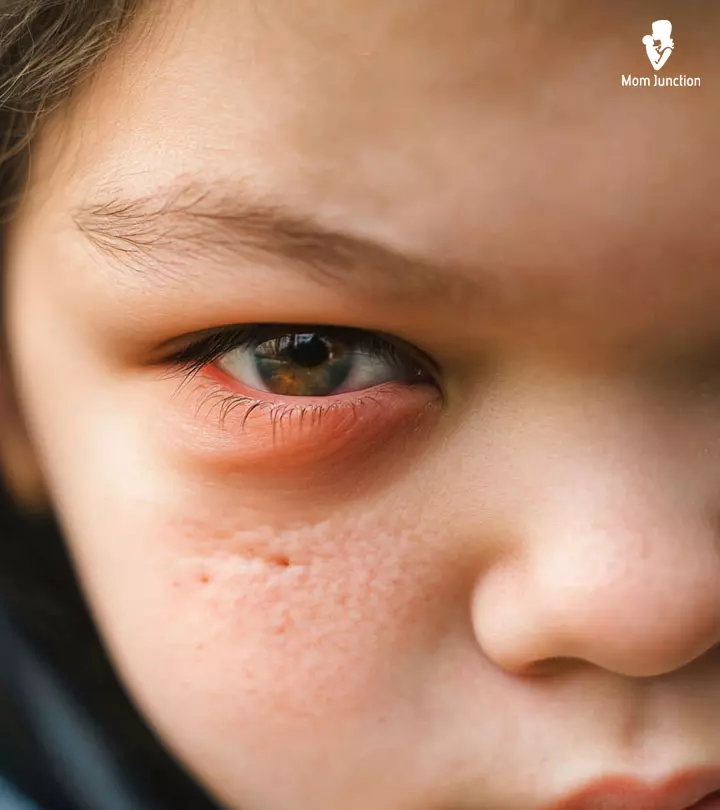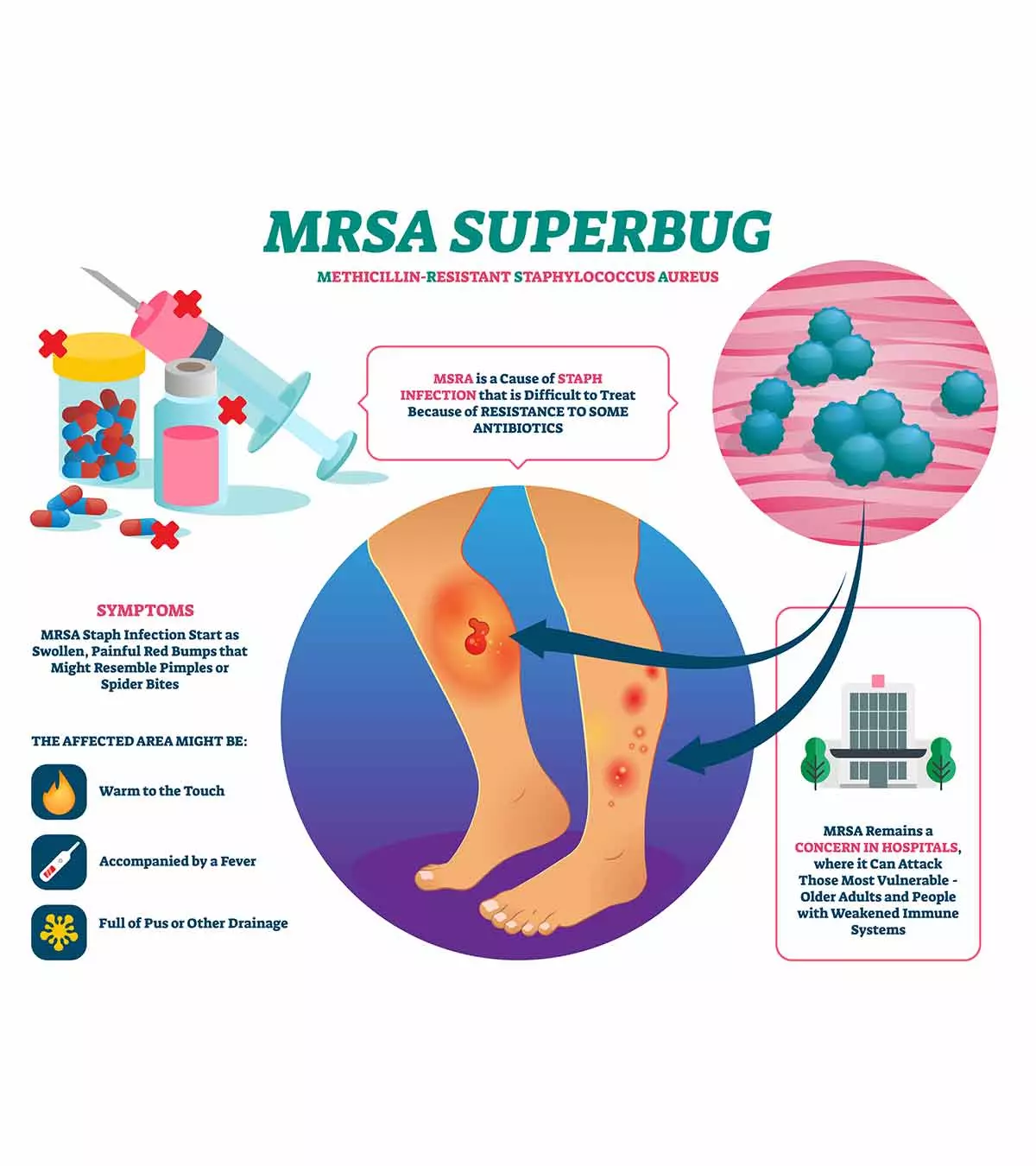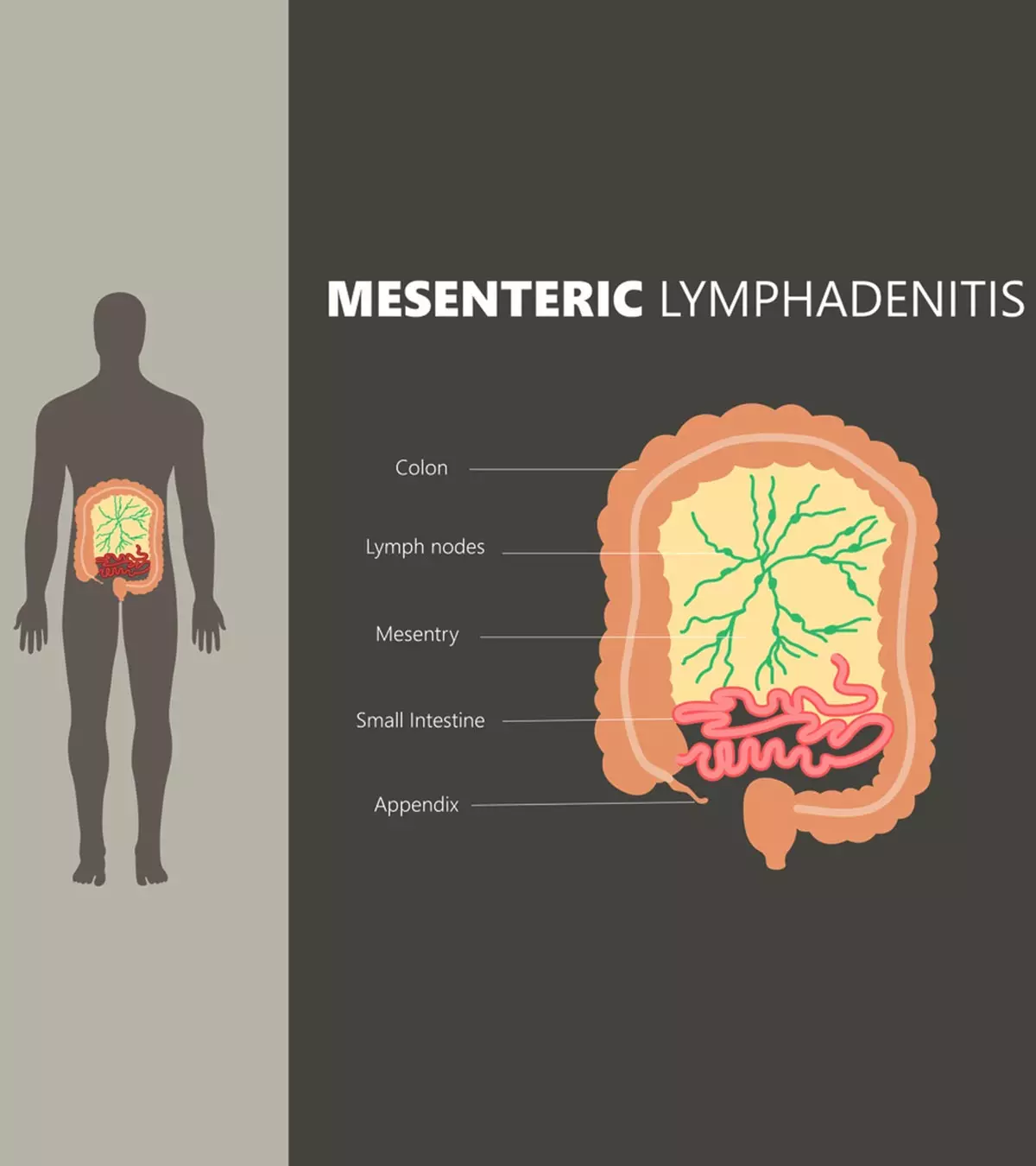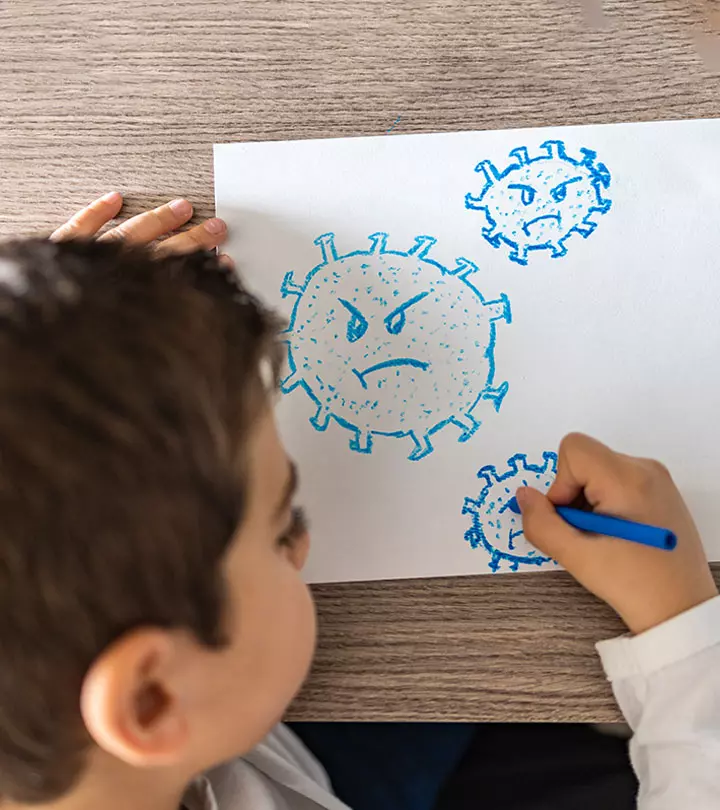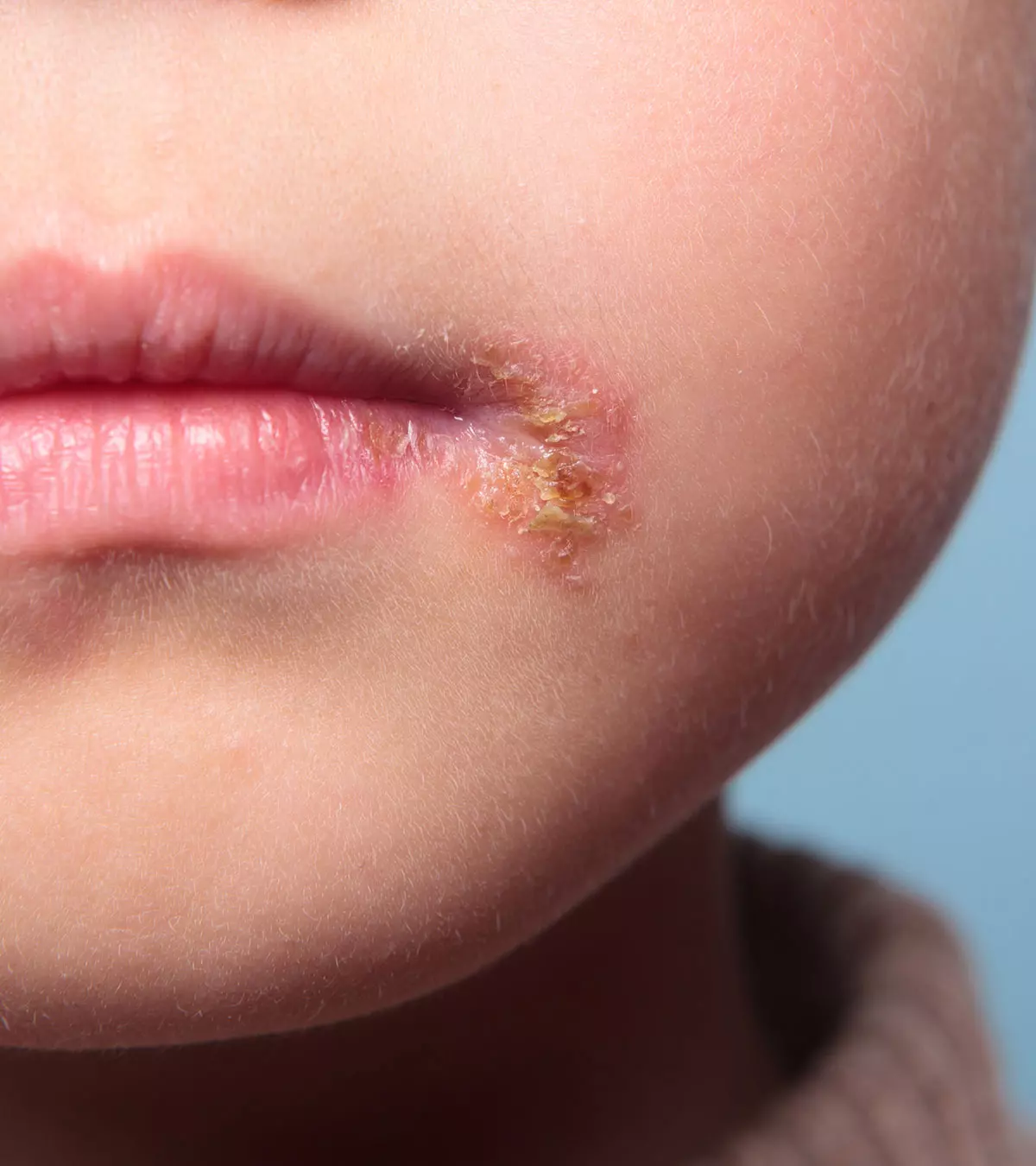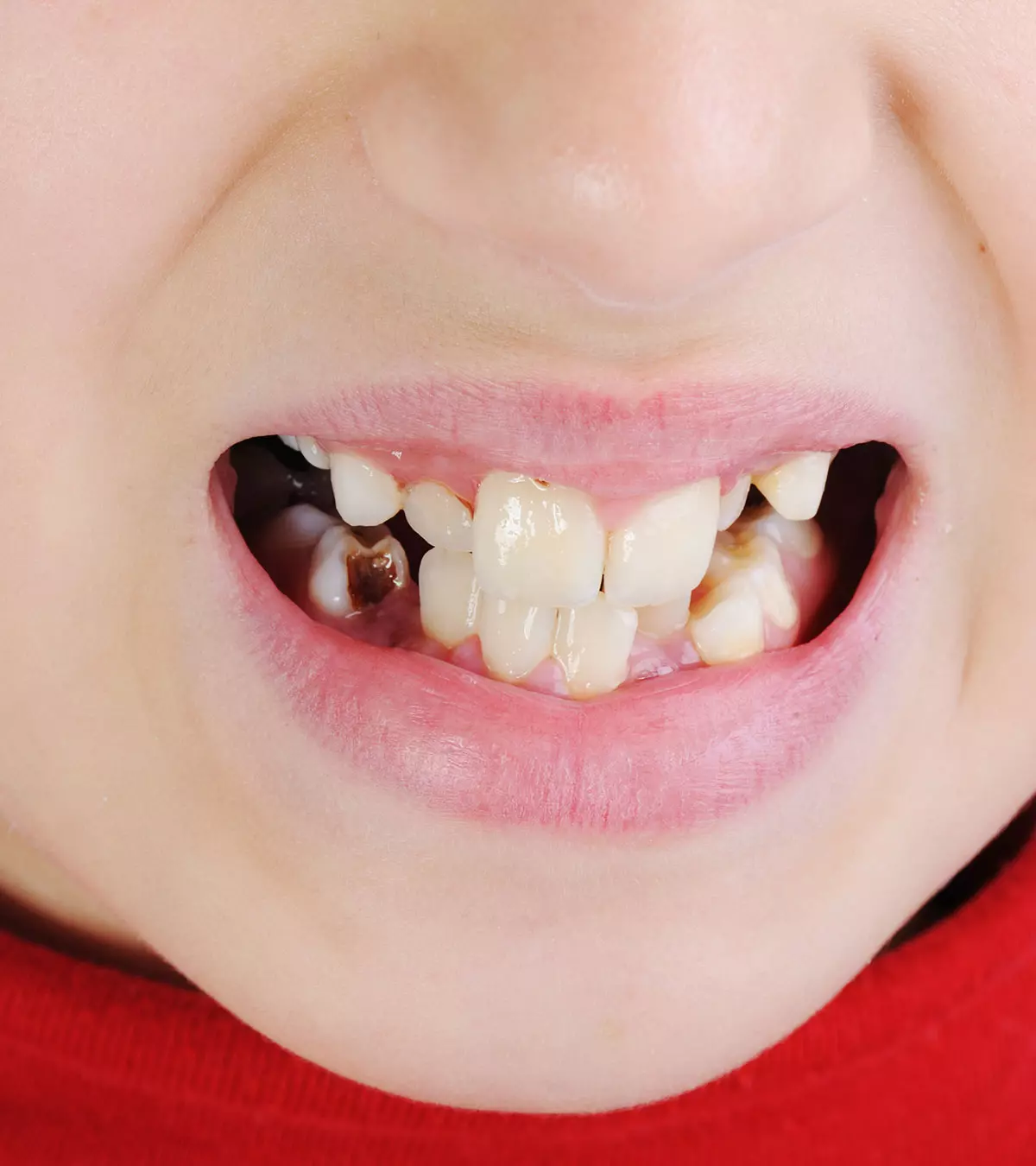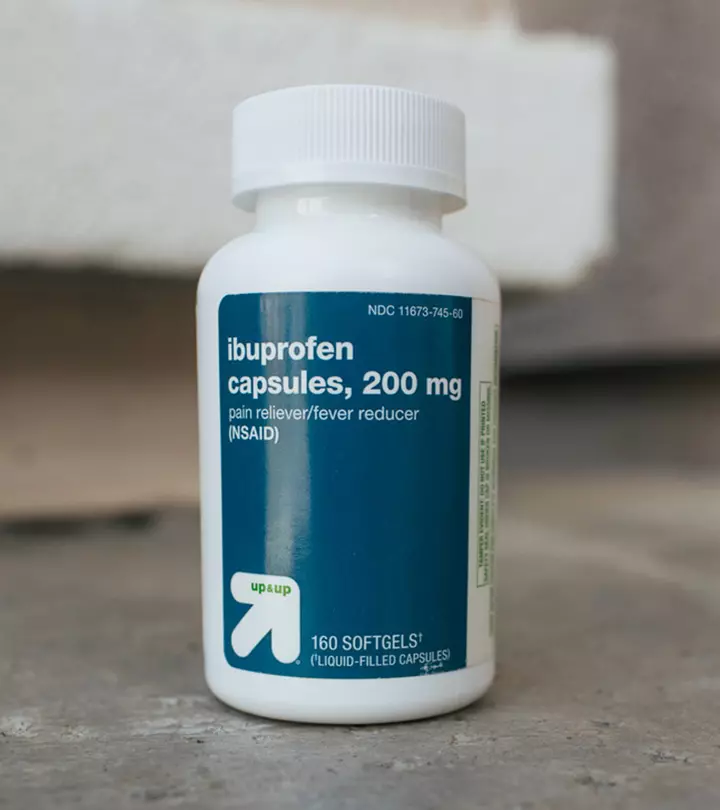
Image: Shutterstock
Ibuprofen is a generic drug, readily available as an over-the-counter medication under brand names such as Advil and Motrin. It is a nonsteroidal anti-inflammatory drug (NSAID) that relieves aches, pains, and inflammation and reduces fever (1). This post provides information about the safe use of Ibuprofen for kids, its side effects, and precautions.
Key Pointers
- Ibuprofen is approved for use in children above six months of age. However, you may seek a pediatrician’s prescription for dosages.
- This drug reduces swelling, mild, moderate fever, moderate headache, juvenile arthritis, and sore throat in children.
- Children with asthma, a history of allergic reactions to pain relievers, kidney problems, and Crohn's diseaseiA chronic condition that causes inflammation of the digestive tract, resulting in diarrhea, pain, and cramping. should not take Ibuprofen.
Is It Safe To Give Ibuprofen To Children?

Image: Shutterstock
The US Food and Drug Administration (FDA) has approved the use of Ibuprofen in children above six months of age. The drug is commonly used for aches, pains, and fever in children and is considered safe. However, you should consult a pediatrician before giving the drug to your child to avoid any dosing error (2).
 Quick fact
Quick factWhat Are The Uses Of Ibuprofen In Children?

Image: Shutterstock
Ibuprofen has anti-inflammatory, analgesiciMedicine used to relieve pain without blocking nerve impulses. , and antipyretic properties. It can provide pain relief and act as an inflammation reducer and fever reducer. It probably acts by restricting the synthesis of some chemicals in the body known as prostaglandinsiA group of lipids that act like hormones and are formed when there is a cell membrane injury. . Ibuprofen is commonly used in children to manage and treat the following conditions (1) (3).
- Mild to moderate pain such as headache, toothache, or sore throat
- Fever due to cold or flu
- Pain and swelling from injury or broken bones
- Symptoms of juvenile arthritis
- Primary dysmenorrhea (painful menses) in adolescent girls
What Is The Dosage Of Ibuprofen In Children?
Ibuprofen is available as a liquid, tablets, capsules, and granules of different strengths. The daily dose depends on the child’s age and body weight. It may also vary with the symptoms and underlying conditions. One dose may usually be given every six hours, and no more than four doses are recommended in 24 hours. You should consult a doctor to know the precise dose for your child.
The following dosage table may give you an idea of the dosage instructions of Ibuprofen for fever and pain but is not a substitute for a doctor’s prescription (4).
Weight in kilograms | Age | Ibuprofen infant drops (50mg/1.25ml) | Children’s liquid Ibuprofen (100mg/5ml) | Children’s Ibuprofen chewable tablets (50mg) | Junior strength Ibuprofen tablets (100mg) | Adult’s Ibuprofen tablets (200mg) |
6-7kg | 6-11 months | 1.25ml | 2.5ml | – | – | – |
8-10kg | 12-23 months | 1.875ml | 4ml | – | – | – |
11-15kg | 2-3 years | 2.5ml | 5ml | 2 tablets | – | – |
16-21kg | 4-5 years | 3.75ml | 7.5ml | 3 tablets | – | – |
22-26kg | 6-8 years | 5ml | 10ml | 4 tablets | 2 tablets | 1 tablet |
27-32kg | 9-10 years | – | 12.5ml | 5 tablets | 2 ½ tablets | 1 tablet |
33-43kg | 11 years | – | 15ml | 6 tablets | 3 tablets | 1 ½ tablets |
44kg or more | 12 years or older | – | 20ml | 8 tablets | 4 tablets | 2 tablets |
Source: American Academy of Pediatrics
Who Should Not Take Ibuprofen?
Ensuring the safety and efficacy of any children’s medicine before giving it to your child is vital. You should discuss the suitability of Ibuprofen with your healthcare provider if your child is on other medications or has the following conditions (5).
- Past allergic reaction to Ibuprofen or other pain-relieving or fever-reducing medicine
- Asthma
- Liver or kidney problem
- History of gastrointestinal bleeding or any condition that has increased risk of bleeding
- Inflammatory bowel disease such as Crohn’s disease or ulcerative colitisiA condition that causes inflammation and ulcers in the colon and rectum leading to bloody diarrhea and abdominal pain.
What Are The Side Effects Of Ibuprofen In Children?

Image: Shutterstock
Below are the common side effects of Ibuprofen (5).
- Indigestion in children
- Heartburn or acid reflux
- Nausea and vomiting
These side effects may be reduced by giving Ibuprofen with food. Consult your child’s doctor if they are severe or do not get resolved. It is crucial to emphasize that the utilization of pediatric medication must always be under the supervision of a medical practitioner.
Ibuprofen may cause adverse reactions in some cases, and it requires medical attention.

Image: Shutterstock
- Severe abdominal pain, vomiting with blood in it, and dark stools, indicating stomach ulcer
- Lack of urine or blood in the urine
- Ringing in the ears
- Allergic reactions, causing wheezing, tightness in the chest, swelling in the mouth, face, lips, or tongue, and skin rashes in children
- Liver problems, which might show up as appetite loss or yellowing of the skin and eyes
- Severe allergic reaction (Anaphylactic reaction)
What Are The Precautions To Be Taken When Using Ibuprofen?

Image: Shutterstock
You must observe the following precautions when giving Ibuprofen to children (6).
- Inform your child’s doctor about other medications your child is taking or has recently taken to avoid any drug interaction.
- Give preference to Ibuprofen products meant for children to avoid accidental overdose.
- Use the measuring cup or measuring tool provided with the liquid product to give the correct dose every time. Shake well before pouring if the product is an oral suspension.
- If your child misses a dose, do not give a double amount at the time of the next dose.
- Do not exceed the dose or duration without checking with your child’s healthcare provider.
- Consult a pediatrician right away if your child’s symptoms persist, become worse, or you observe any sign of side effects.
- Keep medications out of children’s reach to prevent accidental ingestion.
 Be watchful
Be watchfulFrequently Asked Questions
1. What happens if I give my child too much ibuprofen?
If children take ibuprofen in more quantities than the recommended dose, it may cause stomach pain and breathing difficulties, thus making them drowsy (7).
2. How quickly does children’s ibuprofen work?
Ibuprofen should start working after 20 to 30 minutes, and the pain should lessen by then (8). However, it could take an hour for some children.
3. Is 200mg ibuprofen safe for a child?
200mg of ibuprofen can be taken by seven to nine-year-olds a maximum of three times a day (9). However, if there are no results, the child should be taken to the doctor.
4. Is it safe to give ibuprofen to children with viral infections?
Ibuprofen is generally safe for managing viral conditions like colds and flu. However, it is important to follow dosing instructions and consult a pediatrician for guidance specific to your child’s condition (5).
Short-term use of Ibuprofen in the correct dose is considered safe in children. It can be an effective painkiller for kids, helping to alleviate discomfort. However, do not give the drug to febrile children with chickenpox (varicellaiIt is commonly known as chickenpox and is an infection caused by the varicella-zoster virus resulting in itchy blisters on the skin. ) unless recommended by a doctor. It increases the risk of serious reactions. Try giving Ibuprofen with food if it causes an upset stomach. Avoid using other OTC products when giving Ibuprofen to children. Consult a doctor if you need to give your child Ibuprofen for more than 48 hours.
Infographic: When To Give And Not Give Ibuprofen?
Ibuprofen is a common OTC drug with anti-inflammatory, analgesic, and antipyretic properties. Therefore, it is used to manage symptoms of several conditions in children. The infographic below provides insights into conditions when ibuprofen can be given to children and some associated contraindications.

Illustration: Momjunction Design Team
Illustration: Ibuprofen For Children: Uses Side Effects & Precautions
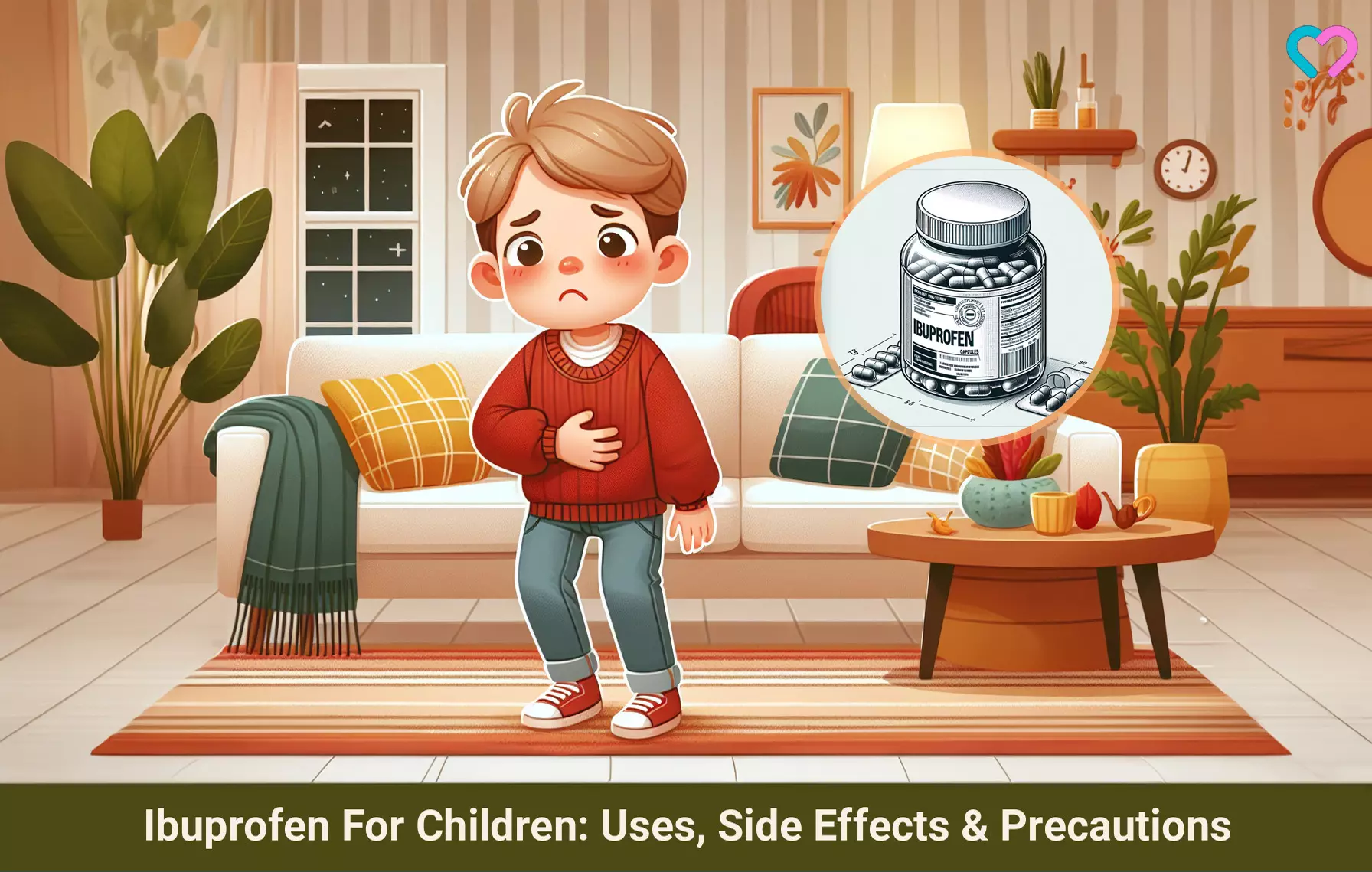
Image: Dall·E/MomJunction Design Team
Understand the intricacies surrounding Ibuprofen (Brufen) – its applications, mechanics, administration, and potential repercussions. Acquire factual insights to empower your health-related decisions from the video below.
References
- Ibuprofen dosing for children.
https://medlineplus.gov/ency/patientinstructions/000772.htm - Motrin® (ibuprofen) Suspension.
https://www.accessdata.fda.gov/drugsatfda_docs/label/2007/019842s020lbl.pdf - Vincent Trung H. Ngo and Tushar Bajaj; (2021); Ibuprofen.
https://www.ncbi.nlm.nih.gov/books/NBK542299/ - Ibuprofen Dosing Table for Fever and Pain.
https://www.healthychildren.org/English/safety-prevention/at-home/medication-safety/Pages/Ibuprofen-for-Fever-and-Pain.aspx - Ibuprofen for children.
https://www.nhs.uk/medicines/ibuprofen-for-children/ - Ibuprofen.
https://www.mskcc.org/cancer-care/patient-education/medications/pediatric/ibuprofen - Pain relief for children – paracetamol and ibuprofen.
https://www.rch.org.au/kidsinfo/fact_sheets/Pain_relief_for_children_-_Paracetamol_and_Ibuprofen/ - Ibuprofen – Children.
https://healthify.nz/medicines/i/ibuprofen-children/ - How and when to give ibuprofen for children.
https://www.nhs.uk/medicines/ibuprofen-for-children/how-and-when-to-give-ibuprofen-for-children/. - Who can and cannot take ibuprofen for children
https://www.nhs.uk/medicines/ibuprofen-for-children/who-can-and-cannot-take-ibuprofen-for-children/
Community Experiences
Join the conversation and become a part of our nurturing community! Share your stories, experiences, and insights to connect with fellow parents.
Read full bio of Dr. Aldo Medina Serpa
Read full bio of Dr. Joyani Das
Read full bio of Dr. Ritika Shah
Read full bio of Vidya Tadapatri






